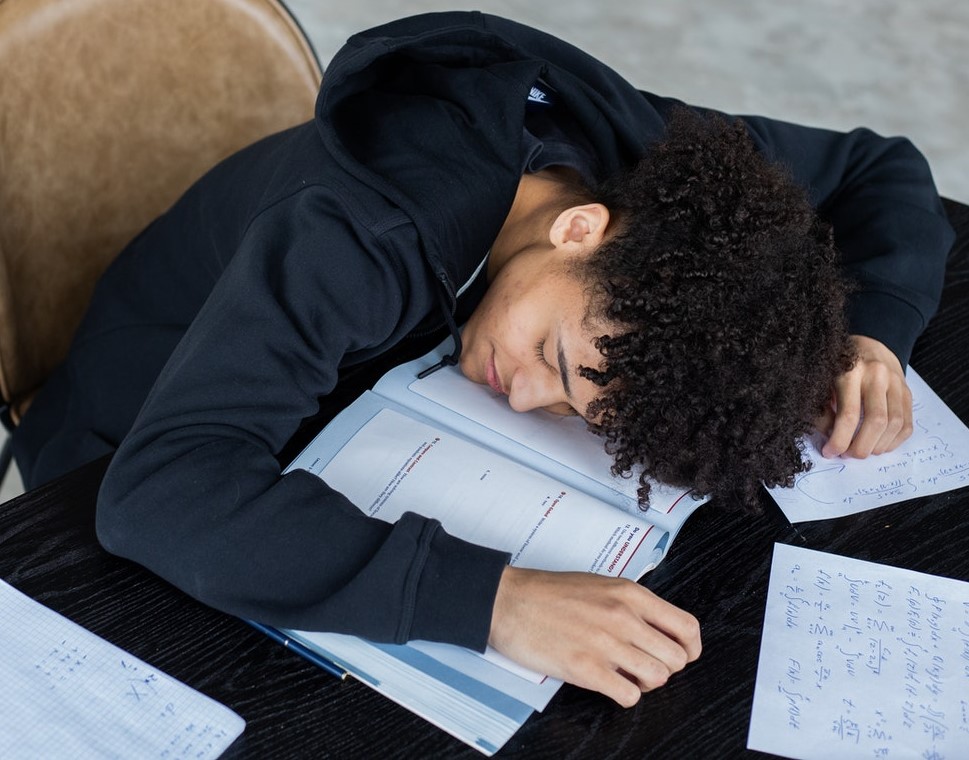“I’m bored” is a tricky sentence. It can mean a variety of things and often serves as code for something a little more difficult to articulate. In light of this, it should always be taken seriously, especially if school is the cause. It’s not uncommon to feel bored at school, but school doesn’t have to be boring.
Why Is Your Child Bored at School?
To better understand why kids get bored at school, it helps to acknowledge what makes adults bored at work. Long, drawn-out meetings, uninspired presentations, waiting around for something to happen… The list goes on, but there is a unifying theme between each lack-tivity: engagement.
A recipe for any good story begins with a compelling premise, characters to whom you can relate, and an engaging plot in which you feel immersed and invested. Without these, a story—be it a novel, movie, or play—will bore its audience. And, if a classroom doesn’t offer these same facets of engagement, kids will start to feel bored at school.
Each student is unique. Accordingly, what one student finds engaging might be the epitome of boring to another. This makes it almost impossible for a classroom to appeal to everyone inside it. But school can (and should) be appealing, even in spite of popular culture’s insistence on proving the contrary. If your child is bored at school, there is a definite reason—and you need to find out why. Below are some possible translations of “I’m bored” and ways you can help.
“This is too easy”
Boredom in the classroom often comes from a lack of challenge. Just as you yourself would not feel the least bit accomplished after completing a four-piece jigsaw puzzle, there is little to no fulfillment for a student correctly answering questions well below their comprehension level.
It might sound great for a student to find school easy, but it can have negative consequences. Kids who breeze through earlier grades usually get by without doing homework or studying, so they never develop good work habits. Then, when school gets more difficult (high school and post-secondary), they might feel overwhelmed that their inherent smarts aren’t enough to carry them through anymore.
Students in need of a challenge often develop adverse feelings toward school as a whole. It’s not at all surprising—if, for finishing your work early, you’re constantly rewarded by having to stay at school with nothing to do for most of the day, you’re bound to get bored. And sustained boredom leads to a consistently low mood, even away from school.
If you suspect that your child isn’t feeling challenged at school, talk to their teacher. They might be able to provide supplemental work and/or more interesting assignments and projects to stave off boredom. You can also search for stimulation beyond the classroom by hiring a tutor. A tutor will meet your child at their level and orchestrate meaningful lessons catered to their needs, tearing up boredom by the roots.
“I don’t get it”
On the opposite end of the spectrum, boredom can be associated with a lack of understanding. Some kids are quick to glaze over certain topics, claiming to be bored instead of admitting that they don’t understand what they’re supposed to be doing. This sort of avoidance can become a harmful habit, so correcting it early on is imperative.
Again, talk to your child’s teacher to see if they’ve provided your child with the necessary knowledge and materials to complete their work. Request a marking rubric so your child can see exactly what they need to do in order to achieve the grade they want. A rubric will also provide a sense of direction, making the objective of the assignment clearer.
Tutoring is a fantastic option if understanding is the issue. Not only will a tutor help build the foundational skills required to understand the work, but they will make connections between the content and your child’s extracurricular interests. Solving soccer-related problems in math, using baking analogies to get a grip on chemistry, analyzing rap songs to develop an appreciation for poetry—these are just a few ways a tutor can prevent your child from feeling bored at school.
“This isn’t dynamic enough”
A child’s world moves and changes at an alarming rate. When you factor in an increasing familiarity with technology, the effect is exacerbated. Apps, shows, and video games offer an ever-shifting landscape of on-demand entertainment and ideas to enjoy, consider, and respond to. Kids adapt to this constant influx of activity and begin to expect it. If teachers can’t offer something comparable, their students will start to feel bored at school.
Technology is not the sole cause of this phenomenon, but it is perhaps the most prominent. Rather than trying to restrict its use, however, technology can be employed to help combat boredom. Too often do traditional lessons feel static to the point of stagnation; incorporating technology allows for educational methods that match the dynamism of a student’s favourite electronic pastimes, thus nullifying boredom.
There are tons of educational apps that feel like games and satisfy students’ need for stimulation. Kids can easily see the progress they’re making, and this motivates them to continue. As they progress, they’re met with new challenges to keep them interested. Below are some examples of our favourites:
Math
English
- Prodigy English
- Interactive Fiction Games (like reading a book, but you make the decisions by typing!)
Science
Social Studies
- World Geography – Android – Apple
- World Geography Games (for the computer; includes more customization options)
There is also plenty of educational content in video form on YouTube—the Tutoring…With a Twist channel is a great place to start!
It’s tough to overhaul the education system overnight, so don’t expect all teachers to utilize these resources. Many do though, and the results redound to their credit. To take full advantage of this sort of educational technology, we suggest working with a tutor. A well-equipped tutor can teach curricular content in an exciting way by maximizing engagement with technology-based resources. Once your child sees how interesting their schoolwork can be, they’ll start to feel less bored at school.
“What’s the point?”
There is, and always has been, a perceived disconnect between the real world and the content that kids learn in school. Kids often struggle to see how their school subjects will have any relevance after graduation, and this hurts their motivation. If kids can’t easily understand why they should be putting time into doing their work, they’ll do it begrudgingly. Or, they won’t do it at all and they’ll feel bored at school.
If memes on social media are any indicator, many adults aren’t convinced that schoolwork is important either. These opinions, especially when heard from a student’s role models, reinforce a negative perspective. However, these opinions are born of misunderstanding.
The curriculum has undergone extensive changes in the past few years. Educators have made a deliberate shift toward including content that has clear real-world applicability. So, the majority of what is taught in classrooms today will serve kids well as they transition to adulthood. Of course, there are always certain concepts whose relevance is a little more difficult to explain, and they are the most frequent targets of “When will I ever need this?”
Regardless, it’s essential that kids understand why they’re required to learn what they’re learning. There is a reason, and knowing that reason can make all the difference. Even more important is making connections between the schoolwork and one’s out-of-school interests. If a student can see a straight line from the classroom to their passions, not only will they do the work, but they will want to.
Working with a tutor is the best way to ensure a student’s passions are considered. A tutor will incorporate the things that their students truly care about into every lesson, reinvigorating interest in the subject at hand. Once the connection is made, students will find it easier to apply themselves in the classroom, even if they’re usually bored at school.
“I don’t like my teacher”
While some kids are quite vocal about this issue, others are a little more reserved. They might not be willing to admit that the teacher is the problem, possibly for fear of getting in trouble. However, not every teacher is a good fit for every student, and this mismatch can lead to boredom in the classroom.
Have an open discussion with your child to see what makes them feel bored at school. If they aren’t sure, ask them what a regular day in the classroom looks like. Listen to how they describe each activity, and ask further questions to see how each lesson is presented. Chances are there is a lack of representation of your child’s preferred learning style.
If you catch this sort of conflict early enough, you might be able to transfer your child to a different class. Sometimes a different teacher can make all the difference. If a switch isn’t possible, try talking to your child’s teacher about incorporating a healthy mix of kinesthetic, visual, and auditory lessons.
If your child still feels bored at school, try working with a tutor. The best tutors understand the importance of catering to specific learning styles, and they’ll come up with unique lessons designed to get your kid engaged with whatever they’re learning. Also, the one-on-one environment is great for building rapport, and a strong student-teacher bond is one of the best ways to prevent boredom.
‘The Twist’ Is a Cure for Boredom
Learning ought to be fun and exciting, and that idea lies at the crux of our philosophy. When your child works with our twisted tutors, there’s no room for boredom! We take the time to form an intimate relationship with you and your child so that we know exactly what makes your eyes light up. Then, every session will bring something new and engaging for your student to grapple with.
To find out more about what the twist can do for you, feel free to contact us. We’d love to hear from you!
If your child finds reading boring, check out the free audiobooks available on the Tutoring…With a Twist* YouTube channel. Listening makes a huge difference!
Traditional workbooks are sometimes boring, so we’ve handpicked our favourite education resources for you to try.
If you’d like to stay up to date with everything in education, head over and like our Facebook page.
*Services provided by With a Twist Education Ltd.

